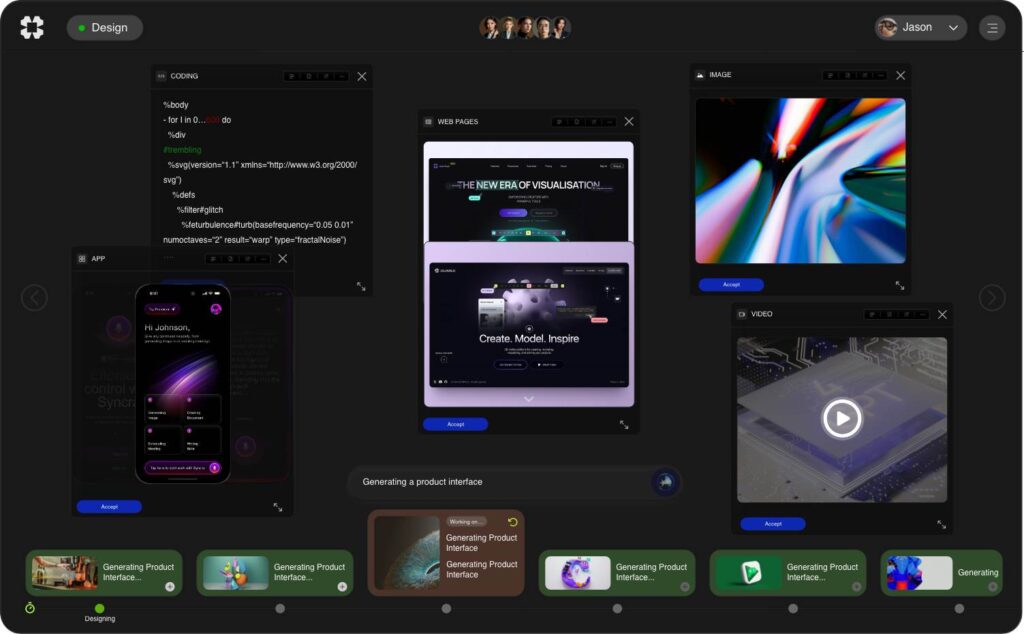Artificial Intelligence (AI) has become a pivotal force in modern industries, transforming the landscape of operational efficiency, decision-making, and innovation. As industries continue to integrate AI technologies, we are witnessing a profound shift that fosters not only Automation but also a new wave of Cognitive Computing. Two prominent AI branches trending in this context are Reinforcement Learning and AI-driven Cognitive Computing. This article delves into recent developments, applications, and insights about these technologies, illustrating their profound implications for industries.
.
**The Rise of AI for Industry: Key Trends and Innovations**
The advent of AI for Industry has revolutionized traditional manufacturing, supply chain management, healthcare, and more. As organizations strive to enhance productivity and agility while reducing costs, AI applications are increasingly being adopted. Current trends indicate that AI is shaping industries by optimizing processes, predicting market behavior, and personalizing customer experiences.
.
For instance, in manufacturing, predictive maintenance powered by AI technologies has enabled companies to anticipate equipment failures before they occur, minimizing downtime and maintenance costs. According to a report by McKinsey, organizations that embrace AI in manufacturing can see an increase in productivity by up to 20%, translating to significant cost savings and increased operational efficiency.
.
AI for Industry is not limited to manufacturing. In healthcare, AI-driven technologies are being utilized to analyze vast amounts of patient data, enhancing diagnosis accuracy and treatment outcomes. An example of this is Google’s DeepMind Health, which utilizes machine learning algorithms to predict patient deterioration and suggest timely medical interventions.
.
**Reinforcement Learning in Automation: A Game Changer**
One of the most exciting branches of AI that have gained traction in recent years is Reinforcement Learning (RL). Reinforcement Learning is a type of machine learning where an agent learns to make decisions by taking actions in an environment to maximize cumulative rewards. This approach has profound implications for Automation, particularly in complex environments where traditional programming fails to deliver agile solutions.
.
In industrial applications, RL can optimize logistics and supply chain management. For example, Amazon employs RL algorithms to streamline its warehouse operations. By training robots to optimize picking routes and reduce time spent on repetitive tasks, the company has significantly enhanced efficiency and throughput. Similarly, in autonomous vehicles, RL plays a crucial role in enabling machines to adapt to dynamic driving algorithms, improving safety and reliability.
.
Furthermore, the gaming industry also benefits significantly from reinforcement learning, illustrated by DeepMind’s AlphaGo. Not only did it revolutionize how we perceive AI’s capabilities, but it also paved the way for real-world applications in other sectors, showcasing RL’s potential to tackle increasingly complex tasks.
.
**AI-driven Cognitive Computing: Transforming Decision-Making**
Cognitive Computing represents another crucial stride in AI technology, designed to enhance human decision-making processes. Unlike traditional computing methods, cognitive systems are built to understand, reason, and learn, mimicking human thought processes. These systems can analyze unstructured data, offering valuable insights that aid in strategic decision-making across various industries.
.
The financial services industry provides a rich ground for cognitive computing applications. For instance, IBM Watson’s capabilities have transformed risk assessment and fraud detection. By analyzing historical transactions and identifying patterns, Watson can flag suspicious activities in real time, enhancing security measures and reducing financial losses. According to IDC, companies leveraging cognitive analytics are experiencing a 50% reduction in processing time for these complex decisions.
.
In customer service, AI-driven cognitive computing can significantly enhance user experience. By utilizing Natural Language Processing (NLP) and Machine Learning algorithms, chatbots can understand and respond to customer queries intelligently, providing instant responses and improving overall satisfaction. Companies like Zendesk leverage these capabilities to automate customer interactions, resulting in quicker response times and reduced operational costs.
.
**Industry Use Cases: Real-World Applications of AI Technologies**
Several industries are harnessing the power of AI through innovative use cases. In agriculture, precision farming, driven by AI, enables farmers to utilize data analytics for optimizing crop yields. By analyzing weather patterns, soil conditions, and crop health through AI, farmers can make informed decisions on resource allocation and harvest timing.
.
In energy consumption, AI applications have been developed to optimize the grid, manage energy flows, and predict demand fluctuations. For example, Google DeepMind partnered with Google’s Data Center team to use its AI algorithms to optimize cooling systems, resulting in energy savings of about 40%. Such applications highlight AI’s potential to not only enhance operational efficiency but also contribute to environmental sustainability.
.
The retail industry is also witnessing AI’s transformative influence. AI-driven analytics tools assist retailers in understanding consumer behavior, allowing for personalized marketing strategies. Companies like Target have utilized predictive analytics to deliver targeted promotions to customers based on purchasing history, vastly improving customer engagement and sales.
.
**Technical Insights: Bridging the Gap between AI Innovations and Practical Applications**
Despite the remarkable potential of AI technologies, their integration into existing systems poses challenges. Organizations must address concerns surrounding data privacy, algorithmic bias, and the need for skilled personnel to manage sophisticated AI operations. Furthermore, the process of integrating AI solutions into legacy systems can be complex and time-consuming.
.
A key technical insight is the importance of data quality. AI models rely heavily on accurate and relevant data to function effectively. Organizations must invest in data-cleaning methods and consider the implications of data sources when training models. Implementing data governance and ethical practices is essential to refine the AI decision-making processes, ensuring transparency and fairness.
.
Moreover, adopting a collaborative approach by involving stakeholders in the development and deployment of AI systems can enhance the efficacy of these technologies. Cross-functional teams, comprising experts from various domains—including IT, operations, and compliance—should work together to ensure that AI solutions align with strategic goals whilst adhering to industry regulations.
.
**Conclusion: The Road Ahead for AI in Industry**
As we continue to navigate the evolving landscape of AI for Industry, the possibilities seem limitless. The momentum generated by Reinforcement Learning and AI-driven Cognitive Computing is already influencing operational paradigms across sectors, enabling unprecedented levels of efficiency and insight.
.
With ongoing advancements and a vibrant ecosystem of emerging applications, AI technologies present a unique opportunity for organizations to innovate, optimize, and thrive in an increasingly competitive marketplace. The potential of AI, when harnessed responsibly and strategically, can lead industries toward a future characterized by enhanced productivity, sustainability, and customer satisfaction.
.
In summary, as industries embrace these technological forefronts, it is vital to keep an eye on ethical considerations and best practices, ensuring that the transformation driven by AI remains beneficial and inclusive for all stakeholders.
.
**Sources:**
1. McKinsey & Company. (2022). “The State of AI in 2022.”
2. IBM. (2023). “IBM Watson – Cognition and AI.”
3. IDC. (2023). “The Business Value of Cognitive Solutions.”
4. Google DeepMind. (2021). “AlphaGo: The Story of Reinforcement Learning.”





















